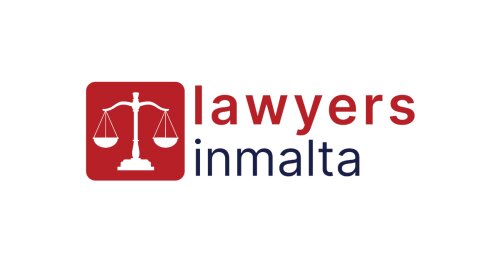Best Employment & Labor Lawyers in Malta
Share your needs with us, get contacted by law firms.
Free. Takes 2 min.
Or refine your search by selecting a city:
List of the best lawyers in Malta
About Employment & Labor Law in Malta
Employment and labor law in Malta is designed to regulate the relationship between employers and employees, ensuring fair treatment and equity in the workplace. The law covers a wide range of aspects including working conditions, wages, employment contracts, collective bargaining, and occupational health and safety. These laws aim to protect workers from exploitation while providing businesses with a framework to operate effectively within the local and EU regulatory environment. The employment law in Malta is influenced by both local legislation and European Union directives, guaranteeing a balanced approach to labor rights and obligations.
Why You May Need a Lawyer
There are several situations where individuals and businesses may require legal assistance in employment and labor law. Common scenarios include disputes over contracts, wrongful termination, discrimination or harassment claims, issues related to wages and benefits, and compliance with health and safety regulations. Employers may also seek legal advice to draft or review employment contracts, implement policies compliant with the law, or represent them in negotiations with unions. For employees, understanding their rights and options can be crucial in addressing grievances and ensuring fair treatment.
Local Laws Overview
Key aspects of employment and labor law in Malta include the Employment and Industrial Relations Act (EIRA), which establishes the framework for various employment-related rights and obligations. This act covers conditions of employment, including working hours, overtime, leave entitlements, and termination procedures. Additionally, anti-discrimination laws protect employees from unfair treatment based on race, gender, religion, disability, and other factors. Occupational health and safety regulations require employers to provide a safe work environment. Malta's legal system also supports trade union activities, enabling collective bargaining and industrial action under certain conditions.
Frequently Asked Questions
What is the standard workweek in Malta?
The standard workweek in Malta is typically 40 hours, with a maximum of 48 hours including overtime. Workers are entitled to regular breaks and rest periods as specified in their employment contracts.
Are employees entitled to annual leave?
Yes, employees in Malta are entitled to a minimum of 25 days of paid annual leave per year, in addition to public holidays. This entitlement is prorated for part-time employees.
What constitutes wrongful termination?
Wrongful termination occurs when an employment contract is terminated without a lawful reason or without following the proper termination procedures outlined in the Employment and Industrial Relations Act.
How is minimum wage determined in Malta?
The minimum wage in Malta is set by the government and is reviewed periodically. It varies based on age and is intended to ensure that workers receive a fair baseline remuneration for their work.
What protections exist against workplace discrimination?
Maltese law prohibits discrimination based on race, gender, sexual orientation, religion, age, disability, and other criteria. Employers must ensure equality in hiring, promotions, and employment conditions.
What should be included in an employment contract?
An employment contract in Malta should include the job title, duties, salary, work hours, leave entitlements, notice periods, and conditions for termination. These contracts provide clarity and protect the rights of both parties.
Is collective bargaining allowed in Malta?
Yes, collective bargaining is permitted and regulated under Maltese law. Employees can join trade unions and negotiate contracts and conditions of employment through collective agreements.
How are health and safety regulations enforced?
Occupational health and safety in Malta is regulated by specific legislation requiring employers to ensure safe working conditions. The Occupational Health and Safety Authority monitors compliance and can enforce penalties for violations.
What is the role of the Industrial Tribunal in Malta?
The Industrial Tribunal resolves disputes related to unfair dismissals, discrimination claims, and other employment issues. It serves as an adjudicative body providing binding decisions to settle conflicts.
Can employees strike in Malta?
Employees in Malta have the right to strike, but certain legal conditions must be met. Strikes should be peaceful, and notice must be given, especially in essential services, to prevent undue disruption.
Additional Resources
For more assistance and resources in employment and labor matters, you can contact the Department for Industrial and Employment Relations (DIER), the Employment and Training Corporation (ETC), or the Occupational Health and Safety Authority (OHSA) in Malta. These organizations provide information and support for both employers and employees regarding rights, obligations, and best practices in the workplace.
Next Steps
If you require legal assistance in employment and labor matters, consider consulting with a lawyer specialized in this field. They can provide personalized advice based on the specifics of your situation. Prepare any relevant documents and questions beforehand to maximize the efficiency of your consultation. Additionally, staying informed about your rights and obligations under Maltese law can help in preventing potential issues and ensuring a fair working environment.
Lawzana helps you find the best lawyers and law firms in Malta through a curated and pre-screened list of qualified legal professionals. Our platform offers rankings and detailed profiles of attorneys and law firms, allowing you to compare based on practice areas, including Employment & Labor, experience, and client feedback.
Each profile includes a description of the firm's areas of practice, client reviews, team members and partners, year of establishment, spoken languages, office locations, contact information, social media presence, and any published articles or resources. Most firms on our platform speak English and are experienced in both local and international legal matters.
Get a quote from top-rated law firms in Malta — quickly, securely, and without unnecessary hassle.
Disclaimer:
The information provided on this page is for general informational purposes only and does not constitute legal advice. While we strive to ensure the accuracy and relevance of the content, legal information may change over time, and interpretations of the law can vary. You should always consult with a qualified legal professional for advice specific to your situation.
We disclaim all liability for actions taken or not taken based on the content of this page. If you believe any information is incorrect or outdated, please contact us, and we will review and update it where appropriate.
Browse employment & labor law firms by service in Malta
Malta Attorneys in related practice areas.
Browse employment & labor law firms by city in Malta
Refine your search by selecting a city.

















